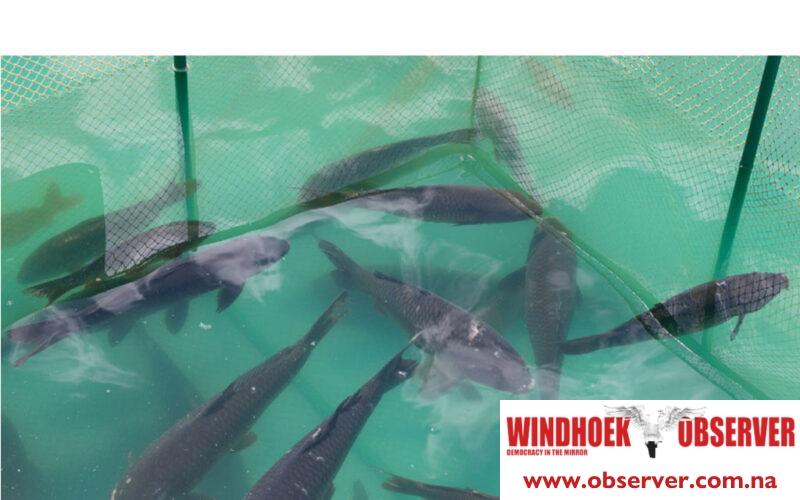Mallex Shipanga
In the heart of Kangongo village, 155 kilometres east of Rundu in the Kavango East region, lies Karovo Fish Farm, a modest fishing business owned by Djami Kafuro.
Although Kafuro is a teacher by profession, he ventured into the freshwater aquaculture fishing sector in 2022.
Freshwater aquaculture, primarily a government-driven initiative, focuses on species like African catfish and tilapia and aims to enhance food security in rural areas.
Kafuro explained that he was inspired by others to start his own business.
“I saw other places where people were doing business with fish and I had the desire to start my own business,” he said.
Kafuro runs Karovo Fish Farm to uplift his community.
“I want to put people in the community into this business, but it needs resources. You can’t put people there without enough resources,” he added.
Despite the lack of resources, Kafuro employs two workers whom he pays monthly.
Kafuro also shared the main challenge facing the business, water supply.
“I am using a single machine to pump the water, but the pressure is not that much. In other ponds I may find the water is too low to pump,” he said.
Instead of challenges, Karovo Fish Farm is supported by the Kamutjonga Inland Fisheries Institute (KIFI).
KIFI is an aquaculture centre of the Ministry of Fisheries and Marine Resources (MFMR) that operates in the Kavango East region.
KIFI exists to both aid in improving food security and benefit the local economy.
With aid from KIFI, Karovo Fish Farm manages to harvest fish every year.
“KIFI usually brings 5 000 fingerlings per year in September and February. I supply food to the local people and I also create jobs for the community,” he said.
Kafuro explained that Karovo Fish Farm only receives government support to a certain extent.
“I never got any training, but I do speak to KIFI to ask for ideas, knowledge, and guidance,” he added.
This year, the minister of fisheries announced that it has issued more than 148 aquaculture licenses to boost the sector’s development.
There are currently 11 active aquaculture farmers employing about 205 people.
Aspiring fish farmers are encouraged to visit the ministry’s regional offices to gather more knowledge about getting support on how to set up an aquaculture operation.




